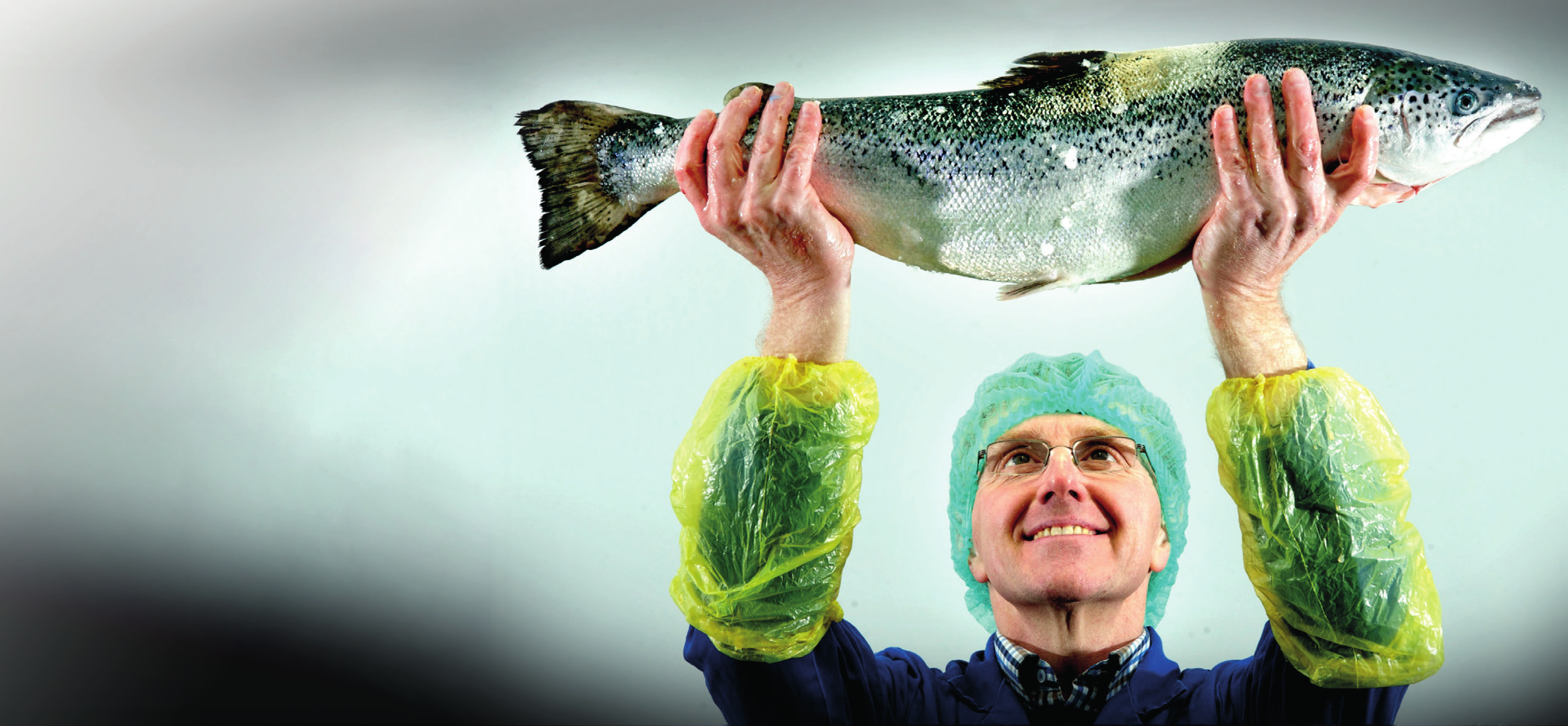Simon Wrench is the Finance Director at Aquascot, one of the largest employee-owned businesses in Scotland and sole distributor of responsibly sourced fresh salmon and trout to Waitrose (part of the John Lewis Partnership). He joined the company in July 2019 and upon direct recommendation from his colleagues Andy Wilson, Head of Commercial for Aquascot and Craig Douglas, Operations Director for Aquascot, he attended the ES Conscious Capitalism Catalyst and Innovation & Growth Catalyst earlier this year.
Aquascot as an organisation champions ongoing learning and were fully supportive of Simon taking time out of the office to complete these courses.

Simon’s role in Aquascot is twofold. He is responsible for assessing financial and operational risk across the business as well as finding ways to minimize them. He is also responsible for the companies short and long term financial strategy.
As Simon was relatively new to the business, both Craig and Andy, who form part of the management team, felt strongly that getting everyone aligned with the same way of leadership thinking was critical to the ongoing success
of Aquascot.
Simon was originally signed up to do the full immersive week in Babson however, earlier this year it became apparent that this wouldn’t be possible due to the travel and group gathering restrictions imposed as a result to the global pandemic. Simon then decided instead to attend the ES Conscious Capitalism Catalyst and Innovation & Growth Catalyst courses organised by ES, both of which he could attend virtually.
Reflecting on his experiences, Simon felt that the ES Conscious Capitalism Catalyst has changed a great deal of his thinking in terms of business and financial outlook. He comments, “It was a bit of a lightbulb moment for me. I’ve been in certain environments where there’s an unbelievable focus on short term profit at all costs. I’ve also been in multiple situations where I’ve witnessed people just being used as resources. You know, get them in for three months and if it doesn’t work out, it doesn’t matter, we’ll get someone else in and this ultimately creates a bit of a toxic atmosphere within a company.
Simon also felt that he took away several life-long learning from the Innovation & Growth Catalyst, and its focus on gorillas, chimps, and monkeys in terms in relation to business size has challenged his outlook on decision-making strategies. He comments, “It’s not to say that if you’re a small company, you can’t take on a big company, and vice versa, you just have to be very considered about your tactics..”
When reflecting on some of the ways that Simon felt that the courses had made him a better leader, Simon said, “The Conscious Capitalism course reaffirmed something I’ve been thinking for a while, and that’s that people don’t like being micromanaged, a lot of people don’t like being managed at all. So what we are trying to do is give everybody space, trust and the structure so that they still feel supported, but feel empowered to start taking on board the decision making responsibilities themselves.”
Perhaps the most notable outcome for Simon, impacting the full Aquascot organisation is the decisions they have made around supporting staff during the current pandemic. As part of their COVID planning and risk mitigation, they have been doing everything they possibly can to make sure that they don’t get a COVID outbreak in either of their two production facilities. Regardless of all of the stringent measures put in place, ultimately there is a chance that this could still happen and if it did there would be a two week period where the organisation still held all of the overhead costs but had no income.
And then you start looking at it from a conscious leadership viewpoint and say, well,
let’s stop viewing people as just resources. Let’s treat them like family, because let’s face it, we spend the majority of the day with our colleagues. So why wouldn’t you try and create a positive, forward-looking culture? And then it just got me thinking about everything that we could do at Aquascot. We are 100% employee-owned and we go around patting ourselves on the back for this, but actually, are we treating people the right way. Do people want to come to work? Are they a bit disappointed when they have to go home?
Before the pandemic, contractual terms would have meant that production unit staff would have immediately gone onto the equivalent of statutory sick pay whereas office based staff, contractually would have still been paid in full for four weeks. The leadership team in conjunction with the Aquascot Partnership Council decided that rather than having this split in contract terms for staff, in the event of their production facilities being closed for a 2 week period due to a COVID outbreak, everyone in the organisation will now receive 50% of their salary for a two week period. Simon feels strongly that his attendance on the ES course has influenced his thinking on this decision and that a universal policy company-wide is better for everyone.
Simon also felt that the power of the peer group he met was almost as valuable if not more valuable than the courses itself.
“Being honest, it’s been immensely beneficial for me in terms of building my professional network, and I’ve also built long-lasting relationships. Even though it’s only been a few months since we took the course, we’ve started to help each other to solve business problems. Our cohort is completely aligned in our thinking, which is great and everyone is so ambitious and focused on moving together in the right direction.“